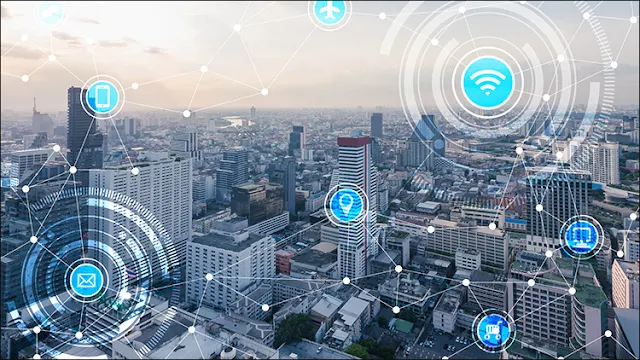Smart City or Surveillance City?
Smart City or Surveillance City?
 |
| Smart City or Surveillance City? |
Since reported in New Researchers, in Toronto, and many other cities around the globe, 'smart city' assignments are underway. The strategy of infrastructure interlinked by software isn't new. Having Artificial Intelligence (AI) use data to actively improve our everyday lives seems like a worthwhile try.
This is not merely some futuristic concept, as for the past twelve months, the location of Hangzhou in Chinese suppliers has collaborated with Alibaba and Foxcom to develop the "City Brain" project, where AI started to run the city. For the past year AI has been sucking up every drop of data it might get its virtual on the job. Virtually every resident is tracked; their activity on internet sites, their purchases, their movements, their commutes - everything is uploaded to the AI's databases, where real-time decisions are made.
The explained goal of the project is to improve life in Hangzhou by letting artificial intellect track traffic, crime, drives, purchases, interactions, general motions, and much more. Citizens were tracked both generally and specifically, with Town Brain even plugged into local social media - it even tracks their cell phones.
The job has been considered an enormous success, and Alibaba is now packaging the system to export to other cities in China and tiawan - and ultimately, the rest of the world. After a year under the new system, dash hour traffic is down 10% as the machine uses hundreds of thousands of cameras dotted through away the city, tracking the movement of almost every car on the streets. It can instantly find accidents, blockages, and can predict traffic flow 12 minutes ahead of time, then adjusts traffic light patterns to even the flow. Illegal parking is tracked instantly and the system will even contact individual commuters to offer detours and weather advisories.
The following is one the law enforcement love. If someone fails the law, they as well can be monitored throughout metropolis before being found by the law enforcement. The reality is that the fully 'smart' city means that pretty much every aspect of you are tracked - the personal privacy issues are huge.
Just how come it seem to be to give good results in Hangzhou? As Alibaba's task leader, Xian-Sheng Hua mentioned... "In China, individuals have less concern with personal privacy, that enables us to move faster. inch
"It's easy to identify when people are not following the 'normal' behaviour patterns. Having discovered those who are not 'normal', they can of course then be tracked - and who they meet with, where each should go and so forth can even be quickly identified, " says Paul Bernal at the University of East Anglia, UK. "As a way to control dissident motions or anything the regulators don't like, it's perfect. inches
According to the Gartner Group, around 2. 3 billion linked things will be used in smart cities this yr - a 43% increase over 2016. This climb of digital connectivity also exposes a number of vulnerabilities cybercriminals will be lining up to take advantage of.
In the gaming View Dogs, you can play a hacker who needs over the central os of a futuristic, hyper-connected Chicago. Once you have control over the city's security system, you can track residents using cctv surveillance cameras, intercept phone telephone calls, and cripple the city's critical infrastructure, bringing metropolis to its knees.
Whilst Watch Dogs is merely a game, it illustrates a scenario that could happen in today's increasingly smart cities. It was only recently that the major crack took place that targeted Internet infrastructure in america with one of the major DDoS attacks ever noted. The root cause was tracked back to forgotten security vulnerabilities in hundreds of thousands of jeopardized linked video cameras. Related Internet of Things (IoT) enabled cameras and devices are driving forward to the wise City effort that is determined by these devices to manage the complete city's infrastructure and assets. Essentially, this dependency suggests that your smallest of security faults within the Smart and practical City infrastructure can advance security exploitation to ridiculous and uncontrollable levels.
All of us are becoming a contemporary society that is more and more willing to have our every movement and conversation monitored for the perceived convenience of a 'safer' and more effective city. We are offering up our individual privileges and freedoms so that big government can better protect us.
You may also be interested: Top 10 Benefits of Using a VPN Service
This can be a well timed thought, as recently we had Remembrance Day canada, and Memorial Day in the usa. On these days we honoured those who offered their lives to protect our rights and liberties. The question in the years ahead is, have we become too anxious to give up those rights and freedoms that so many have passed away to preserve, simply to make existence more convenient? A smart city is at reality, a surveillance city, where citizens' privacy is the price tag on the efficiency benefits.
Stay tuned!



Comments
Post a Comment